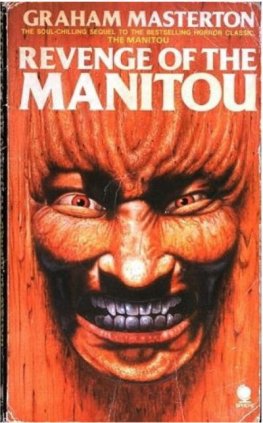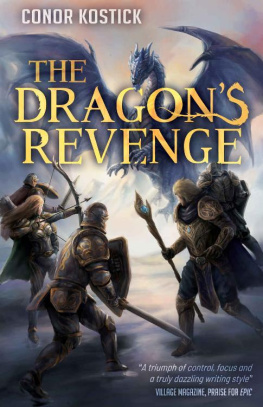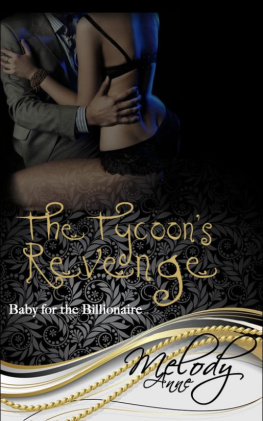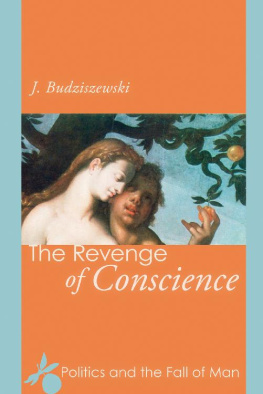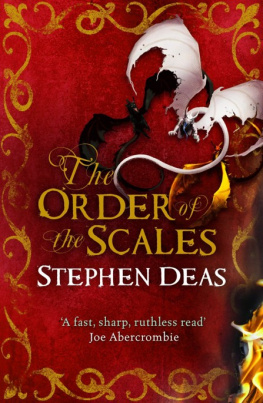R EVENGE
A Short Enquiry into Retribution
STEPHEN FINEMAN
REAKTION BOOKS
Published by Reaktion Books Ltd
Unit 32, Waterside
4448 Wharf Road
London N1 7UX, UK
www.reaktionbooks.co.uk
First published 2017
Copyright Stephen Fineman 2017
All rights reserved
No part of this publication may be reproduced, stored in a retrieval system, or transmitted, in any form or by any means, electronic, mechanical, photocopying, recording or otherwise, without the prior permission of the publishers
Page references in the Photo Acknowledgments and
Index match the printed edition of this book.
Printed and bound in Great Britain by
TJ International, Padstow, Cornwall
A catalogue record for this book is available from the British Library
eISBN: 9781780238807
CONTENTS
PREFACE
W here would we be without revenge? All the better, many would say. Yet as social animals, our compulsion to avenge a wrongdoing is among the most primal of human urges, and not without reason. It deals with threats to ones well-being, territory, pride, honour, esteem, identity or role. Getting even shows there is a price to pay for wrongdoing. It resets the equilibrium and pecking order, a tacit rule of feuding couples, aggrieved workers, conflicting tribes or warring nations. It is the ultimate statement of self and community, both a protective and a warning to others to keep away justice in the raw.
So we are all avengers at heart, but our heads tell us differently. We are taught that revenge should be suppressed, diverted or dealt with by the authorities. There are justice systems intended to limit revenge and stop it spiralling out of control (although they can make matters worse when justice depends on how wealthy you are, or on your colour, race or gender). Religion adds its contentious voice. The core texts of the Abrahamic religions envisage a world where love, compassion, turning the other cheek and forgiveness prevail, and where revenge should rarely surface. But religious authority is assuredly malleable, often twisted to suit the givers or receivers needs. Sceptics note that turning the other cheek is simply an invitation to be slapped again, while righteous revenge and serving Gods purpose are among the most fluid phrases in the religious lexicon. They have been used to justify some of the bloodiest acts of vengeance in human history.
Revenge fascinates. It has long engaged novelists, playwrights and film-makers, and been pored over by philosophers and social scientists. Its potential for destruction makes it a central concern of government. It can be instantaneous or pre-planned the dish served cold harnessing the best and worst of human ingenuity. But if we look at revenge with a dispassionate eye, what does it tell us about the human condition? Does revenge always deserve the condemnation associated with it? Is there a crucial tipping point between good and bad revenge? After all, we readily warm to the avenger who rights a wrong by breaking the rules, and we fight wars on the premise of justified revenge. In this book I suggest that revenge is not always the monster it is made out to be, and in many ways we cannot live without it. But there is another side. As revenge morphs into ever more complex and dangerous forms, it has become much harder to manage. What, then, are our options?
When immersed in a subject, authors will often tell you that the world gradually appears to be saturated with examples of what they are researching; they seem to pop up everywhere. Revenge is certainly no exception. As I cast my eye over my daily newspaper, watch the news, read a novel and listen to some of my friends woes, revenge in some form or other appears. There seems abundant evidence that there is no such thing as a revengeless society.
ONE
THE ROOTS OF REVENGE
J ust outside Riyadh, in the caves and crevices of the scorched Saudi Arabian landscape, troops of baboons shelter from the intense sun and survey their terrain. Once very wary of their human neighbours, they have become bolder over time, launching raids on farms and houses in search of food and drink. But what happened in 2000 shifted the goalposts. According to newspaper reports, a local resident was driving along the road from Mecca to Taif and accidentally struck and killed a baboon at the side of the road. He continued on his way, to return along the same stretch of road three days later, totally unprepared for what happened next. A baboon screeched out a cry of recognition when it saw the car, a rally call to the rest of the troop to launch an ambush. They bombarded the car with stones and ripped out its windscreen. Severely shaken, the driver barely managed to escape unscathed.
Resembling a scene from Planet of the Apes, this event is hard to credit. However, it depicts what primatologists dub a revenge system common to our primate ancestors. In truth, we can only guess what the baboons might have felt when they lost a member of their community, or whether the urge for revenge was actually on their minds before the car was spotted. However, as not too distant relatives of ours, their actions bear all the hallmarks of human revenge.
At the top of the pyramid alpha males enjoy their privileges: the safest sleeping places, the best food and the most desirable females. Revenge is swift on usurpers. Certainly, any chimp who acts above its station has to contend with the pain of decisive retribution. Strangers are not welcome: rhesus macaques will attack their own image in a mirror, believing a stranger is threatening them. Male chimps regularly patrol their community boundaries and, should they happen upon members of a neighbouring community, they will attack, often brutally. Occasionally the social order is upturned when an alliance of subordinate families attack and overthrow the dominant family: a coup dtat. By deterring freeloaders and penalizing rule breakers, the species has gained ascendancy over their socially fragmented competitors.
And so it is with the human primate. Revenge is a persistent and powerful human drive, fixed in our biosocial make-up and triggered by strong emotions: sorrow, grief, humiliation, anger or rage. As far as we can tell, prehistoric bands of roving hunter-gatherers generally enjoyed each others company, sharing their resources. Disputes over meat cheating or bullying could be resolved by distancing or expelling an offender. But more severe threats to the tribe, such as killings or kidnappings of females, demanded harsher justice: revenge killings by high-status males. Struggles for dominance and best mating, if successful, gave evolutionary advantage to the tribe by reinforcing the resilience of the group.
Matters became more complex when tribes became attached to the land and groups grew in size. The importance of protecting kinships and status intensified and different feuding patterns evolved: chains of reprisal to protect property and self-esteem, with rules about who could take whose life, when and where. The complex cultural shaping of revenge had begun. As societies began to sprawl and urbanize, revenges main drawbacks came to the fore: it was anarchic and uncontrolled. The state would now do the job that revenge had done, but impartially and dispassionately, backed by anti-revenge teaching. In taking revenge, declared Francis Bacon, a man is but even with his enemy, but in passing it over he is superior, while Catholic canon law regarded the very contemplation of revenge as a venial sin. Poets and philosophers added their voices: Before you embark on a journey of revenge, dig two graves, said Confucius. Revenge, at first thought sweet, Bitter ere long, back on itself recoils, opined Milton.


